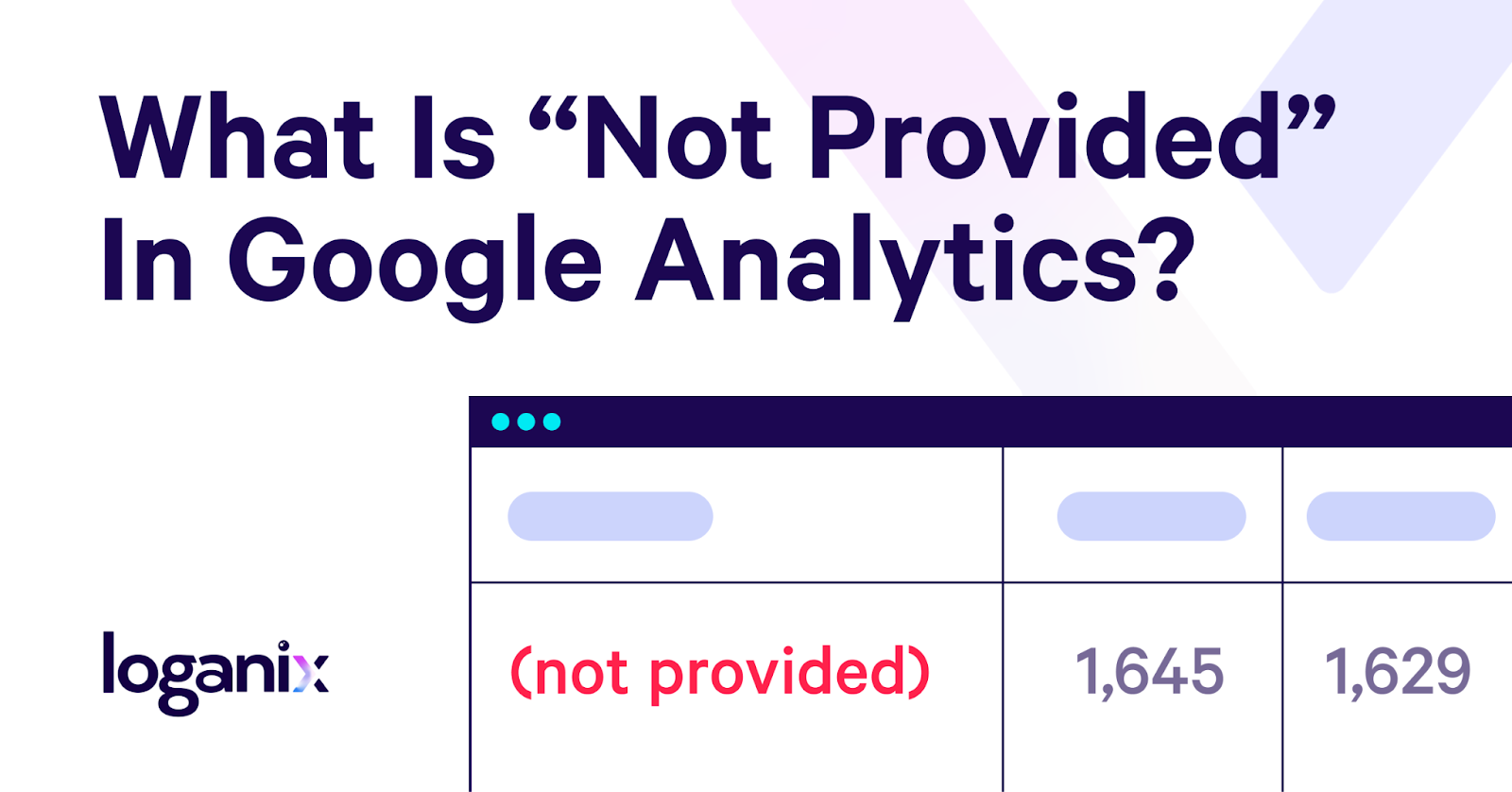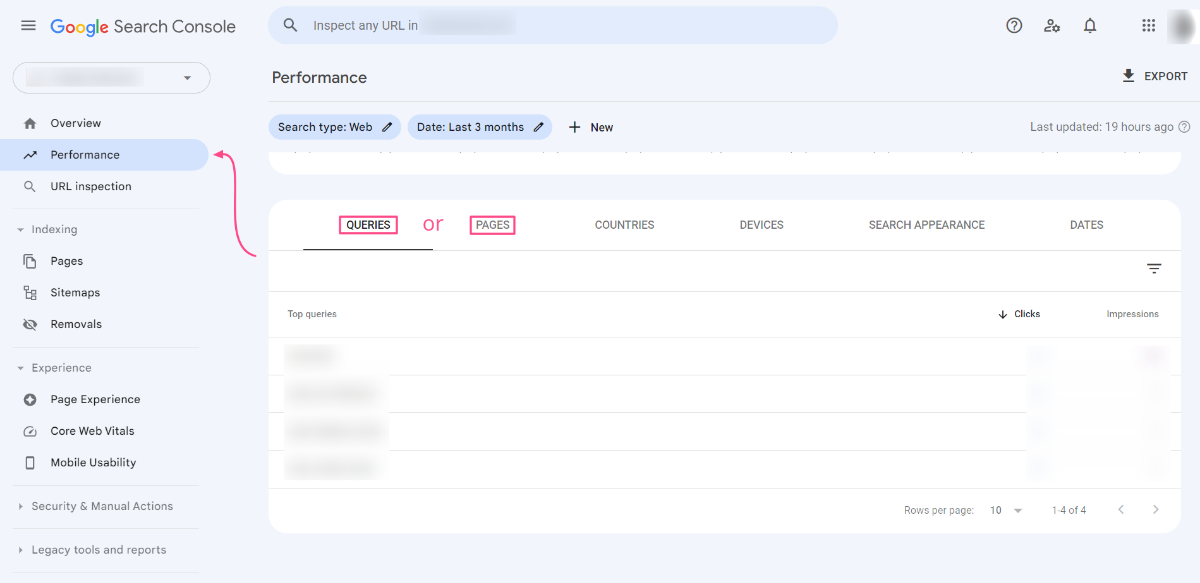What Is “Not Provided” In Google Analytics? SEO Insights

Hand off the toughest tasks in SEO, PPC, and content without compromising quality
Explore ServicesIf you used to frequent the “Acquisition” tab in Universal Analytics, you might have noticed that some of your keyword data was hidden behind the ambiguous label “not provide.”
So, what is “not provided”?
To answer this question and more here’s what we have in store for you:
- an in-depth exploration of what “not provided” means in Google Analytics,
- a discussion on the challenges and downsides it presents,
- and explore strategies to help you optimize your website and SEO strategy despite the “not provided” obstacle.
What Is “Not Provided” in Google Analytics?
From 2011 onward, Google started encrypting search queries for users logged into their Google accounts. It was a move toward enhancing user privacy but also resulted in the “not provided” label in Google Analytics.
Since then, security has significantly increased. You see, the organic keyword data showed in Universal Analytics (Analytics 3) was only partially affected by this security measure. However, in the name of user privacy, Universal Analytics’ successor, Google Analytics 4, shows no organic keyword data whatsoever.
Consequently, webmasters are left in the dark about the exact search queries that bring visitors to their websites.
Learn more: Interested in broadening your SEO knowledge even further? Check out our SEO glossary, where we’ve explained over 250+ terms.
The Downsides of “Not Provided” in Google Analytics
For webmasters, the “not provided” label obscured a once-clear view of user behavior and search intent—a lack of visibility that presents the following challenges:
- Tailoring content to meet a target audience’s needs becomes challenging without knowing the exact keywords search engine users type into the search engine. SEOs must now use a combination of alternative tools—both paid and free—to ensure that their content is as optimized as possible.
- The ability to measure the success of search engine optimization (SEO) campaigns is now significantly hindered by the move from Google to hide keyword data.
- Understanding the intent behind a user’s search query is essential for creating relevant content. The “not provided” status makes collecting insights into what users seek when they land on a website difficult.
Strategies to Uncover “Not Provided” Keywords
While the “not provided” label in Google Analytics has pulled a veil over organic search data, all is not lost. There are strategies and tools available that will help you uncover the hidden keyword data and regain insights into user behavior.
Let’s explore some of these methods.
Using Google Search Console
Google Search Console (GSC) is a valuable tool for webmasters looking to bridge the gap left by “not provided.” GSC provides data on search queries that led users to your site, even though this data is not directly linked to your Google Analytics account.

Here’s how you can leverage GSC:
- Performance report: Navigate to the “Performance” report in GSC to view the queries driving traffic to your site. The report shows the number of clicks, impressions, and the average position for each query.
- Page-level insights: GSC also allows you to filter data by page, helping you understand which queries are driving traffic to specific pages on your site.
Leveraging Alternative SEO Tools
Aside from GSC, several SEO tools will also help uncover “not provided” keyword data. Some of the most popular tools include:
- SEMrush: SEMrush offers a range of features, including keyword research, site audits, and competitor analysis. The “Organic Research” report shows the keywords your site is ranking for, along with estimated traffic and other valuable metrics.
- Ahrefs: Ahrefs is another comprehensive SEO tool that provides data on organic search, backlinks, and more. The “Organic Keywords” report shows the keywords your site is ranking for, as well as the estimated traffic and position for each keyword.
- Moz: Moz offers a suite of SEO tools, including keyword research, link building, and site audits. The “Rank Tracker” feature lets you track your site’s rankings for specific keywords over time.
“Not Provided” FAQ
Q1: What Is Not Set and Not Provided in Google Analytics?
“Not set” and “not provided” in Google Analytics both indicate missing data, but they occur in different contexts. “Not set” appears when Google Analytics hasn’t received any information for the expected dimension, while “not provided” is shown when the data is intentionally withheld for privacy reasons, particularly in relation to search queries.
Q2: What is the Impact of “Not Provided” on Paid Search Campaigns?
The “not provided” label in Google Analytics primarily affects organic search data and has minimal direct impact on paid search campaigns. However, it can indirectly influence paid campaigns by limiting the organic search query data available for cross-analysis and optimizing both organic and paid search strategies.
Q3: How Should I Adjust My SEO Strategy in Light of “Not Provided”?
To adjust your SEO strategy in light of “not provided,” focus on using alternative tools like Google Search Console for keyword insights. Also, continue to use Google Analytics to analyze user behavior on your website to understand the intent behind their visits and optimize accordingly.
Conclusion and Next Steps
At Loganix, we understand the challenges that “not provided” presents and are here to help. Our suite of Managed SEO Services is designed to get more from your SEO while doing less of it yourself, ensuring a reliable and cost-effective approach to search engine optimization.
🚀 Take control of your SEO success and get started with Loganix today 🚀
Hand off the toughest tasks in SEO, PPC, and content without compromising quality
Explore ServicesWritten by Brody Hall on December 18, 2023
Content Marketer and Writer at Loganix. Deeply passionate about creating and curating content that truly resonates with our audience. Always striving to deliver powerful insights that both empower and educate. Flying the Loganix flag high from Down Under on the Sunshine Coast, Australia.





